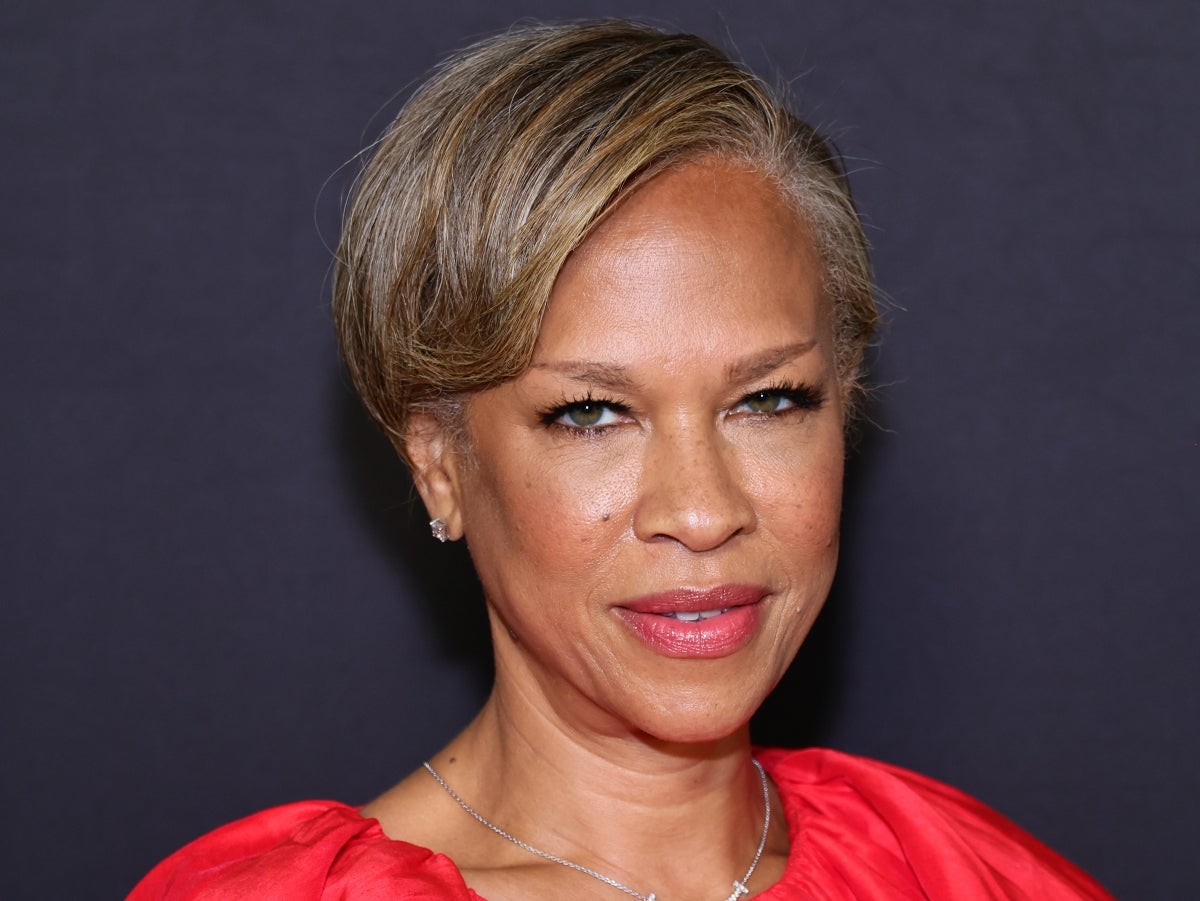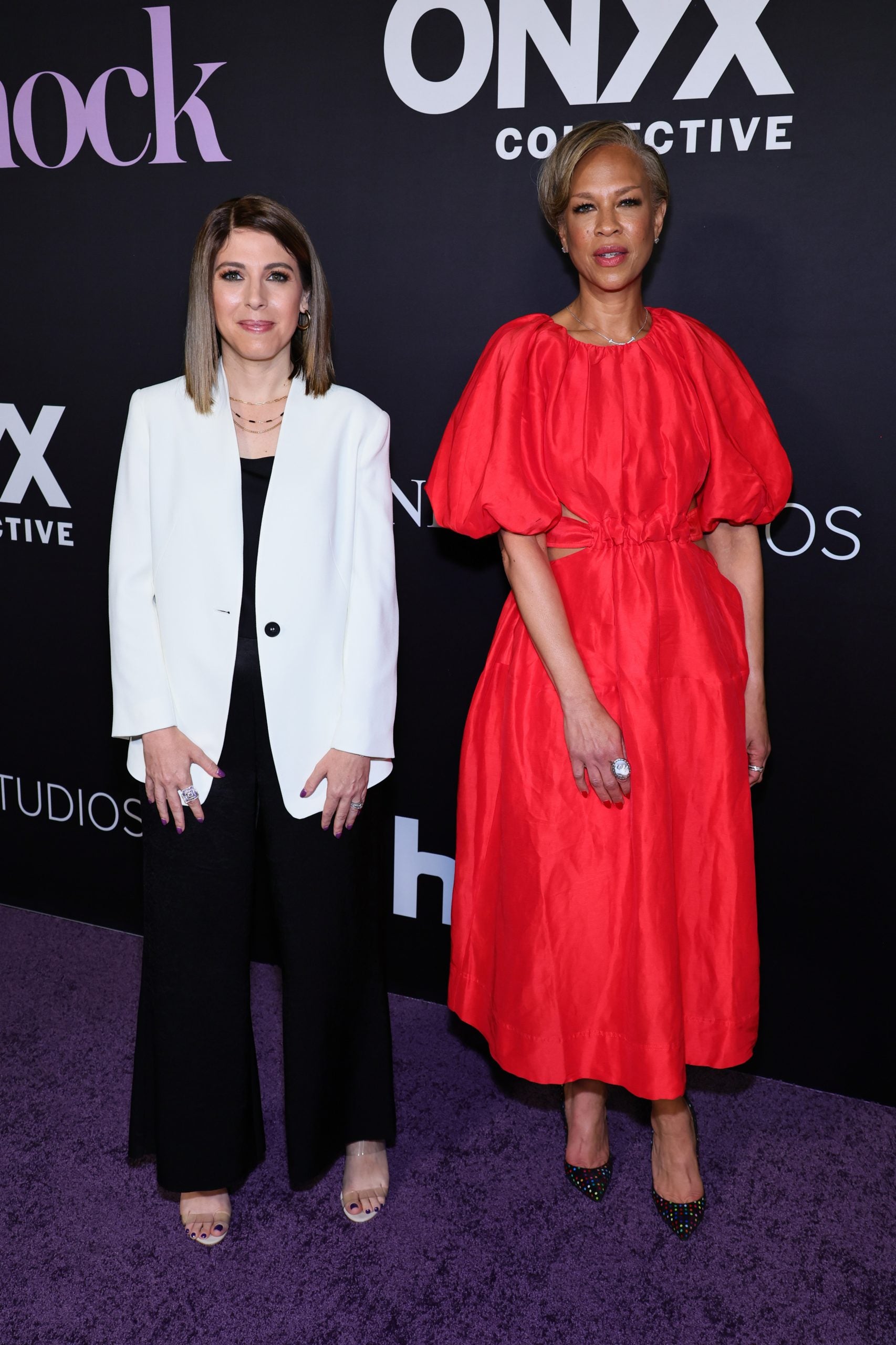
When considering the health of a country, one of the first things to examine is the health and viability of its birthing population. Compared to other countries of its size and resources, the United States is failing women and birthing people. The situation is beyond dire when we zoom in on the maternal health rates as they pertain to Black women. In their heartbreakingly poignant new documentary, Aftershock, directors Tonya Lewis Lee and Paula Eiselt probe all of the ways that America’s health system has betrayed and devastated Black women and the Black community across time.
Told through the families of Shamony Gibson and Amber Rose Issac, and screened at the 2022 ESSENCE Festival of Culture, two young women who died due to childbirth complications, Aftershock explores some damning statistics in our healthcare system, centers on the families left to pick up the pieces, and demands a call to action.
“I started working with the US Department of Health and Human Services on an infant mortality awareness-raising campaign that focused on the disparity in equity. Those numbers are the same,” Lee tells ESSENCE. “Black babies die three to four times the rate of white babies in this country. As I traveled the country, I discovered that when you’re talking about an infant’s health, you’re talking about a woman’s health. In my travels, I heard that women were dying. I knew I needed to make a film about this.”
For Eiselt, whose previous film, 93Queen, examined the women of the Hasidic enclave of Borough Park, Brooklyn, who formed the first all-female ambulance corps in NYC, women’s health had always been a topic she was drawn to. “I was actually at the tail-end of making that film in 2017 [when] a slew of articles started coming out,” she says. “ProPublica had a piece alerting me that the US was the most dangerous place in the industrialized world to give birth in. As a mom of four, I had my own traumatic birth experiences, which really struck me to my core because I knew what those articles were saying. What I did not know, though, was that Black women died three times the rate of white women. I felt taken by that and called to use whatever skill set I had to contribute to uplifting these stories and making the public aware that we are in crisis.”
Once she decided to prioritize the project, Eiselt felt it was imperative to have a Black woman co-director, which is how she and Lee connected. “Tonya and I spoke about how important it would be to find those key human stories to get this film going. Shawnee Benton-Gibson had put out a call to action, alerting everyone that her daughter Shamony had just passed two months prior, postpartum. She and Omari [Maynard], Shamony’s partner, were putting on an event called Aftershock, which ended up being the film’s namesake. I saw that, and I immediately called Tanya and said, ‘I think this is something. I think we need to get on this.’ I reached out to Shawnee, had a conversation with her, and in typical Shawnee fashion, she was ready to go; she proved to be the film’s guiding light.”
Through Shamony’s family, Lee and Eiselt learned about Amber Rose Issac. “Omari reaches out to [men] who’ve lost a partner from childbirth complications, and I feel like Paula, and I had seen that tweet that Amber put out about the poor care she was getting before she passed away,” Lee explains. “And then she passed away in April of 2020; Omari reached out to Bruce [McIntyre] to give him support. As Bruce and Omari got to know each other, Omari told Bruce about the film, we had several conversations with Bruce, and he ultimately agreed to participate in the film as well.”

As the film debuts on the heels of the shocking Supreme Court decision to overturn the right to legal abortion across America, we can only anticipate even worse statics and much more to say on the subject. “We’re talking about maternal health, women’s health, and the overturning of Roe [v. Wade] is definitely of concern for women’s health,” Lee says. “It puts more women at risk.”
For Eiselt, the conversation has never been more critical. “It’s becoming so clear that abortion care is maternal healthcare; it’s so intertwined,” she explained. “It is one conversation, and although that’s the truth, it hasn’t been one conversation publicly for a while. We hope people take away from this film that the full spectrum of reproductive rights are all one, from abortion care to birth; it’s all about choice. Whether you choose to be pregnant and go through that pregnancy, and if you do go through with that pregnancy, you should have a choice for dignified, respectful, and good maternity care, whatever setting that is. So I hope Aftershock will be seen in that light.”
With so much going on in the world, Lee and Eiselt want to ensure that we continue to do the work and have conversations that disrupt the status quo. “The reason why our rates are so bad is that we don’t have an integrated maternal health system,” Eiselt explains. “Every other industrialized nation does, and their rates are much better, so it’s going to take accountability of legislators and hospital administrators to make room for that integration, welcome midwives in, share the space. I think it’s following the work of the community that’s been doing this for decades, specifically with Aftershock, Shawnee, Bruce, and Omari are doing incredible work. Bruce is working to bring a birthing center to the Bronx. He is actively working with other reproductive activists on the ground locally. People can donate to saveArose Foundation to help their efforts. I think it’s listening to the community most impacted and seeing and hearing where they’re telling us to go — how we can contribute. It’s community up and then accountability to the system.”
For Lee, it’s also looking beyond what you’ve been told or what you’ve seen. “Open your mind to midwifery care,” she says. “I think there’s been a campaign against midwives, so many people automatically discount midwives, and they’re integrated into every other healthcare system in the world of industrialized nations for women’s health. If you hear somebody say, ‘I’m thinking about a midwife,’ be open to that, explore it. As women in general, as families think about birthing, we talk about choice in birthing. Open your mind to the possibilities, explore, be a consumer and go out there and see what’s available to you and what’s the right fit for you as a woman, as a family, for your birthing choice. As Paula said, just be out there, see what’s happening in the community, and uplift and support those people who are trying and doing the work to make for better birthing outcomes for all of us.”
Aftershock debuts July 19 on Hulu.